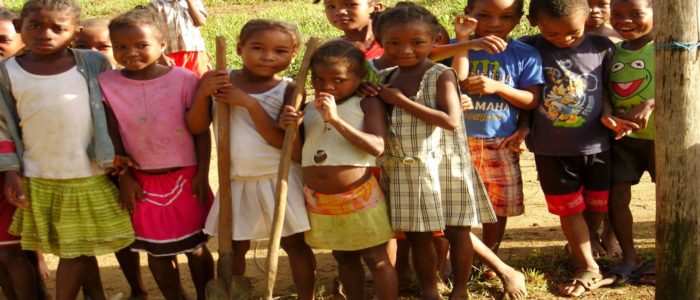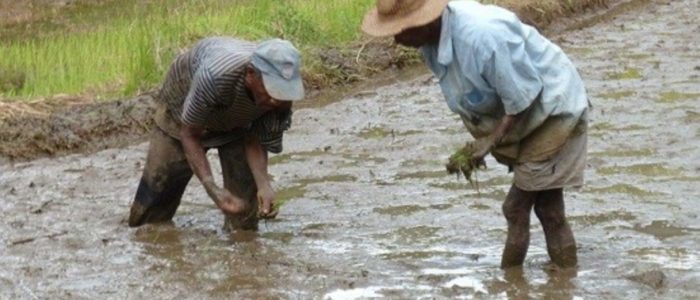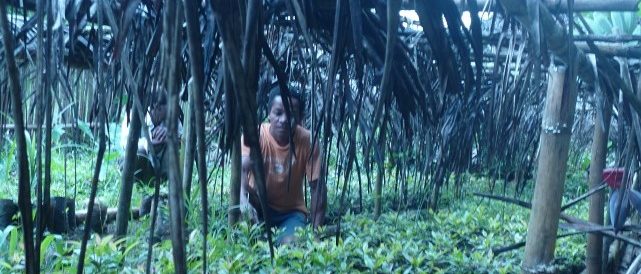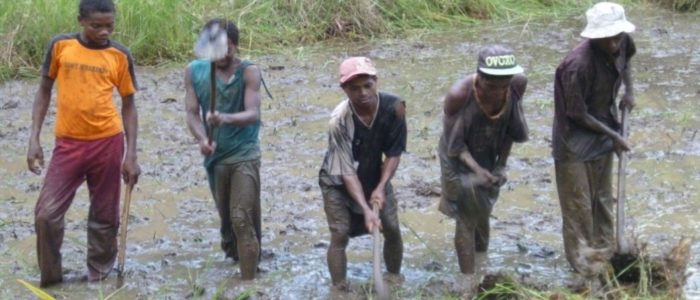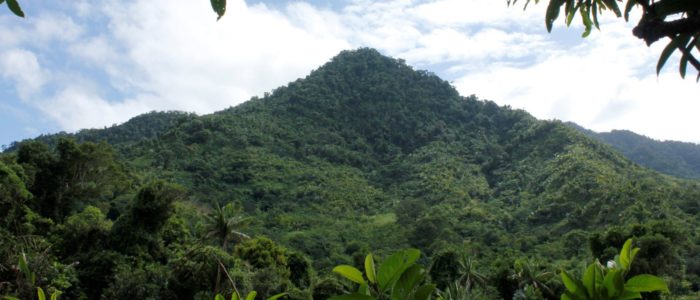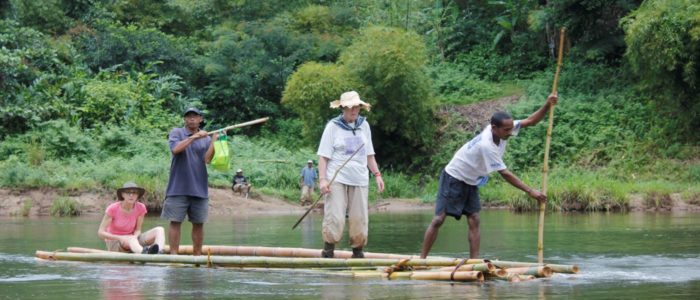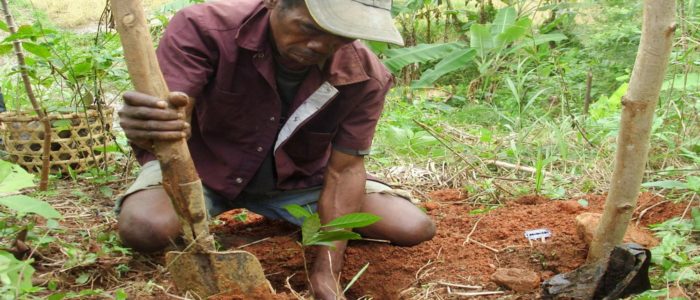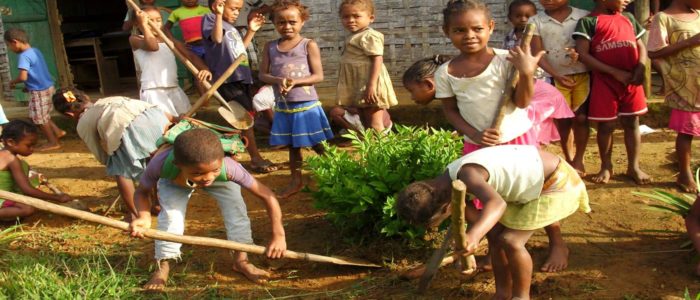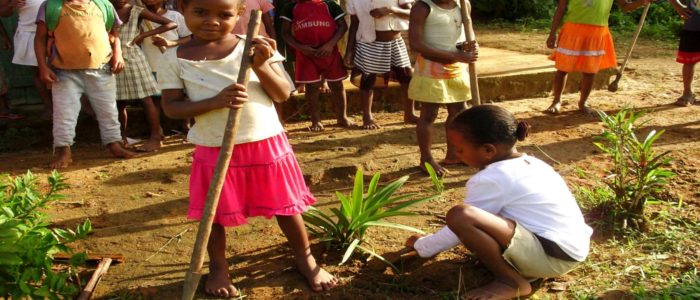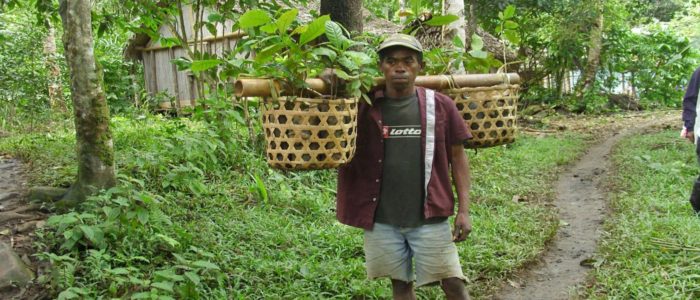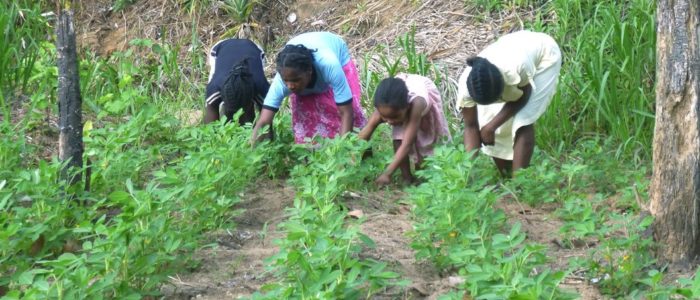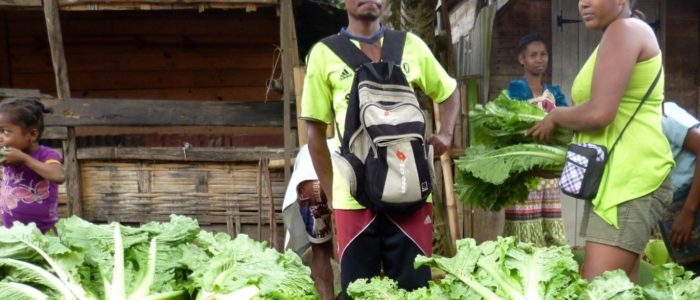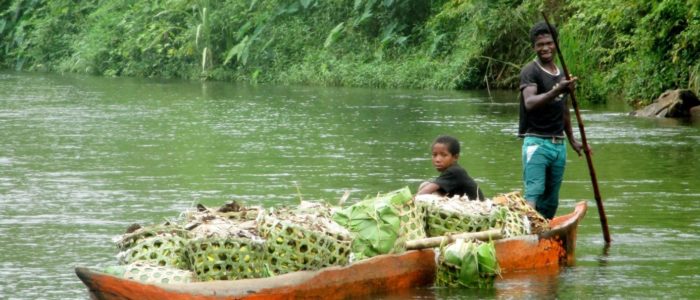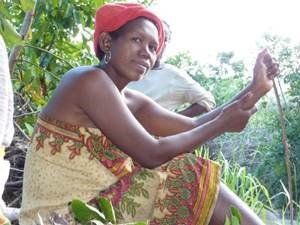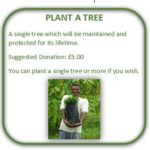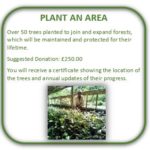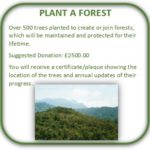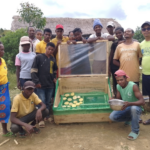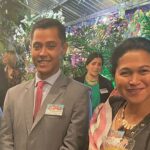Rice is the staple in Madagascar and considered by families to be the most important element of the meal. As one partner put it, ‘Rice is life!’. Traditional methods of rice cultivation produce low yields leaving families hungry for up to 7 months of the year and pushing them to clear new areas of land for rice cultivation. With help from the SAF team, farmers are able to build simple irrigation systems, using locally available materials, and learn new high yielding rice growing techniques. With yields increasing as much as 6 times, they can meet all their needs with their existing land and no longer face a long ‘lean season’.
Planting trees around their homes and on steep slopes not only provides families with a sustainable source of timber for construction and carpentry, it also prevents serious erosion and enables families to secure the land title without having to resort to the traditional, regular clearing-burning of tavy, which has always been recognized as a technique for marking territory! The Betampona team work with individuals, schools and whole communities to raise awareness of the importance of tree planting for maintaining soil and water quality, vital for people who depend directly on agriculture, and for protecting the precious primary forest. With well managed tree-planting families no longer need to encroach on the rainforest to meet their timber and firewood needs. Community level tree nurseries provide the necessary seedlings.
The jagged landscape of Betampona, once cleared of forest, is vulnerable to extreme soil erosion. Agroforestry, allows families to grow high value crops on steep degraded slopes and increases the tree cover at the same time. Planting a combination of fruit trees (breadfruit, jackfruit, lychee, soursop, citrus and papaya) with high value cash crops (vanilla, cloves, coffee, cocoa, cinnamon and pepper) enables farmers to improve family nutrition as well as earning a substantially improved income.
Growing a range of fruit and vegetables helps improve nutrition and can also provide a source of income. The Betampona team offers training and advice in organic horticulture techniques, including compost making and soil management. This has helped many families increase the diversity of their food base and maintain their soil quality.
Madagascar's fauna is endangered for many reasons. The main reason is habitat loss, but another reason is hunting for bushmeat. The project team is encouraging small scale animal husbandry to replace the need to hunt wild animals for meat.
Poultry and pigs provide families with a vital occasional source of protein. The project does not supply livestock but, where families are already keeping animals, the project team provides advice on more sustainable and profitable ways of rearing livestock, as well as providing access to veterinary support, to stop the spread of disease.
There is more to fish farming than just digging a pond and stocking it with young fish. Fortunately, the Betampona team is on hand to give training and technical advice as necessary. Sale of fish provides welcome additional income as well as an additional source of protein. Families who have developed fish farming reported increasing their fish intake from less than once a month to twice a week.
The Betampona team helps local families to understand the importance of sustainable natural resource management. Environmental education sessions, held in local schools and with farmers’ associations, focus on the importance of moving away from destructive practices, like ‘tavy,’ and raise awareness of the value of functioning ecosystems both locally, nationally and globally. Betampona primary schools have won the Provincial Environment Prize several years in a row.
The land management techniques proposed by the Betampona team are based on a sustainable land use profile from the valley bottom to the hill top, which should enable familes to produce sufficient and varied crops to meet their needs and more on their existing land without having to resort to further deforestation:
• flooded or irrigated rice fields in the valleys;
• market gardening above or in the fallow rice fields;
• habitation composed of houses, gardens and small livestock;
• fruit trees and the cash crops at mid-slope;
• reforestation at the top of the hill.
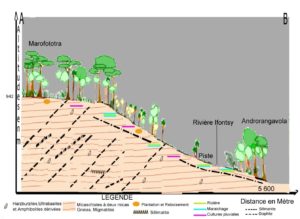
Diagram of SAF’s ideal land use profile: Since the 1990s, the activities have diversified in the study area, generating a greater use of the available land, following the ‘ideal profile’ worked out by the SAF Betampona team.


 English
English
